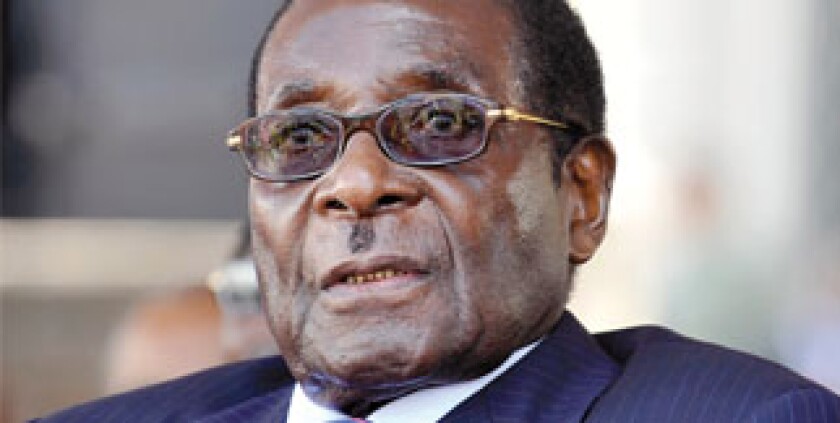Zimbabwe’s president Robert Mugabe has finally agreed to seek debt relief for his battered country under the Highly Indebted Poor Countries (HIPC) programme – after stubbornly denouncing its terms as humiliating.
Zimbabwean finance minister Tendai Biti told Emerging Markets in an interview in Abidjan Thursday that a cabinet meeting chaired by Mugabe on March 23 adopted a new debt relief strategy, which includes resort to the HIPC initiative to tackle a $6 billion debt burden.
Biti also said Zimbabwe will meet foreign donors in Oslo on Monday to discuss its critical need for budgetary support. Of $810 million needed in foreign assistance to fund this year’s budget, only $3 million had been received, he said.
Zimbabwe’s economy has been on its knees for more than a decade, and has suffered record levels of unemployment and shortages of food and fuel. Zimbabwe has been unable to sustain a national currency: it adopted the US dollar as legal tender, and Biti said there is no end in sight to dollarization. Mugabe has doggedly spurned debt relief with stringent terms. He has said Zimbabwe would offer its natural resources as collateral for a deal, but both the IMF and the opposition Movement for Democratic Change (MDC) have scoffed at the idea.
“Cabinet agreed on a debt strategy that will include an attempt to use our resources through securitizations and what it called traditional methods,” Biti said. “Traditional methods basically is a euphemism for HIPC. So we now have political consensus around this issue,” he added.
Asked whether Mugabe had fully embraced the HIPC initiative, Biti said: “Of course. It was a cabinet decision.”
Biti, an MDC stalwart, was assigned the finance portfolio in a power sharing deal with Mugabe’s ZANU-PF. MDC leader Morgan Tsvangirai is prime minister.
It is now Biti’s task to draw up a bankable reform blueprint – something Zimbabwe watchers say is fraught with uncertainties, because of the shaky and dysfunctional nature of the coalition government.
“We have to craft a roadmap vis-à-vis a monitored programme,” Biti said. He indicated Zimbabwe would allow unfettered access to IMF monitors. “You don’t behave like Sudan: you do a staff monitored programme and no one is at the side of the pitch [to monitor it],” he added.
Biti hinted Zimbabwe might cave to foreign pressure and soften its laws requiring majority local shareholding in companies in the country, which have been a major turnoff for foreign investors.
“I think sooner, rather than later, there will be clarity on our indigenization and empowerment clauses,” he said, adding that they would be redefined “in a matrix that I think anyone and everyone will be able to live with”.
Both Biti and Prime Minister Tsvangirai have campaigned tirelessly for assistance from rich nations, something Mugabe has been happy to let them to do given his own pariah status in the West.
“I have absolutely no doubt that we will be able to attract significant capital in the second half of the year,” Biti said. “And I think our recovery in the second half of 2010 will be front loaded.”
Zimbabwe is also negotiating credit lines with South Africa and regional banks, and Biti said he hoped to be unveiling substantial credit lines “within the next six weeks”.
